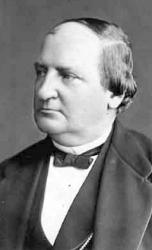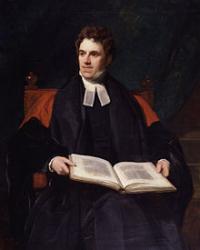Planning worship?
Check out our sister site, ZeteoSearch.org,
for 20+ additional resources related to your search.
- |
User Links
Person Results
Charles F. Gounod

1818 - 1893 Person Name: Charles F. Gounod, 1818-1893 Scripture: Psalm 17:8 Composer of "EVENING HYMN" in Christian Worship Charles F. Gounod (b. Paris, France, 1818; d. St. Cloud, France, 1893) was taught initially by his pianist mother. Later he studied at the Paris Conservatory, won the "Grand Prix de Rome" in 1839, and continued his musical training in Vienna, Berlin, and Leipzig. Though probably most famous for his opera Faust (1859) and other instrumental music (including his Meditation sur le Prelude de Bach, to which someone added the Ave Maria text for soprano solo), Gounod also composed church music-four Masses, three Requiems, and a Magnificat. His smaller works for church use were published as Chants Sacres. When he lived in England (1870-1875), Gounod became familiar with British cathedral music and served as conductor of what later became the Royal Choral Society.
Bert Polman
Charles F. Gounod
W. Howard Doane

1832 - 1915 Person Name: W. H. Doane Scripture: Psalm 17:8 Composer of "[Saviour, more than life to me]" in Sacred Songs and Solos An industrialist and philanthropist, William H. Doane (b. Preston, CT, 1832; d. South Orange, NJ, 1915), was also a staunch supporter of evangelistic campaigns and a prolific writer of hymn tunes. He was head of a large woodworking machinery plant in Cincinnati and a civic leader in that city. He showed his devotion to the church by supporting the work of the evangelistic team of Dwight L. Moody and Ira D. Sankey and by endowing Moody Bible Institute in Chicago and Denison University in Granville, Ohio. An amateur composer, Doane wrote over twenty-two hundred hymn and gospel song tunes, and he edited over forty songbooks.
Bert Polman
============
Doane, William Howard, p. 304, he was born Feb. 3, 1832. His first Sunday School hymn-book was Sabbath Gems published in 1861. He has composed about 1000 tunes, songs, anthems, &c. He has written but few hymns. Of these "No one knows but Jesus," "Precious Saviour, dearest Friend," and "Saviour, like a bird to Thee," are noted in Burrage's Baptist Hymn Writers. 1888, p. 557.
--John Julian, Dictionary of Hymnology, Appendix, Part II (1907)
===================
Doane, W. H. (William Howard), born in Preston, Connecticut, 1831, and educated for the musical profession by eminent American and German masters. He has had for years the superintendence of a large Baptist Sunday School in Cincinnati, Ohio, where he resides. Although not a hymnwriter, the wonderful success which has attended his musical setting of numerous American hymns, and the number of his musical editions of hymnbooks for Sunday Schools and evangelistic purposes, bring him within the sphere of hymnological literature. Amongst his collections we have:—
(1) Silver Spray, 1868; (2) Pure Gold, 1877; (3) Royal Diadem, 1873; (4) Welcome Tidings, 1877; (5) Brightest and Best, 1875; (6) Fountain of Song; (7) Songs of Devotion, 1870; (8) Temple Anthems, &c.
His most popular melodies include "Near the Cross," "Safe in the Arms of Jesus," "Pass me Not," "More Love to Thee," "Rescue the Perishing," "Tell me the Old, Old Story," &c.
- John Julian, Dictionary of Hymnology (1907)
W. Howard Doane
Craig Sellar Lang
1891 - 1971 Person Name: Craig S. Lang, 1891-1971 Scripture: Psalm 17:8 Composer (descant) of "LOBE DEN HERREN" in Lift Up Your Hearts Craig S. Lang (b. Hastings, New Zealand, 1891; d. London, England, 1971), was educated at Clifton College, Bristol, England, and earned his D.Mus. at the Royal College of Music in London. Throughout his life he was an organist and a music educator as well as a composer of organ, piano, and choral works. Lang was also music editor of The Public School Hymn Book (1949). He named many of his hymn tunes after Cornish villages.
Bert Polman
Craig Sellar Lang
Hugh Wilson
1766 - 1824 Person Name: Hugh Wilson, 1766-1824 Scripture: Psalm 17:8 Composer of "MARTYRDOM" in Complete Anglican Hymns Old and New Hugh Wilson (b. Fenwick, Ayrshire, Scotland, c. 1766; d. Duntocher, Scotland, 1824) learned the shoemaker trade from his father. He also studied music and mathematics and became proficient enough in various subjects to become a part-time teacher to the villagers. Around 1800, he moved to Pollokshaws to work in the cotton mills and later moved to Duntocher, where he became a draftsman in the local mill. He also made sundials and composed hymn tunes as a hobby. Wilson was a member of the Secession Church, which had separated from the Church of Scotland. He served as a manager and precentor in the church in Duntocher and helped found its first Sunday school. It is thought that he composed and adapted a number of psalm tunes, but only two have survived because he gave instructions shortly before his death that all his music manuscripts were to be destroyed.
Bert Polman
Hugh Wilson
Henri F. Hemy
1818 - 1888 Scripture: Psalm 17:15 Composer of "ST. CATHERINE" in The Presbyterian Book of Praise Henri F. Hemy, born in the United Kingdom. Hemy spent time at sea as a young man, emigrating to Australia in 1850 with his family. Unable to make a decent living in Melbourne, he returned to Newcastle England. He was organist at St. Andrews Roman Catholic Church in Newcastle, later teaching professor of music at Tynemouth and at St. Cuthbert's College in Durham. He was pianist to Lord Ravensworth, Music Director of Ushaw College, and his orchestra played at fashionable venues in the region. He sang baritone as well. He composed waltzes, polkas, quadrilles, and galops. 3 music works: Easy Hymn Tunes for Catholic Schools; Royal Modern Tutor for Pianoforte; Crown of Jesus. He was active in local politics and published a manifesto in the daily newspaper. He lost a ward election. He also painted artwork. He set most of Longfellow's works to music.
John Perry
Henri F. Hemy
James G. Walton
1821 - 1905 Person Name: J. G. Walton Scripture: Psalm 17:15 Composer of "ST. CATHERINE" in The Presbyterian Book of Praise Born: February 19, 1821, Clitheroe, Lancashire, England.
Died: September 1, 1905, Bradford, New York.
Little is known of Walton’s life. His works include:
Plain Song Music for the Holy Communion Office, 1874 (editor)
Music: ST. CATHERINE
--www.hymntime.com/tch
James G. Walton
Harriet Beecher Stowe

1811 - 1896 Person Name: Harriet Elizabeth (Beecher) Stowe Scripture: Psalm 17:15 Author of "Still, Still with Thee, When Purple Morning Breaketh" in The Hymnal and Order of Service Stowe, Harriet, née Beecher, daughter of the Rev. Lyman Beecher, D.D., was born at Litchfield, Connecticut, June 15, 1812. In 1832, her father having been appointed President of Lane Seminary, Cincinnati, Ohio, she removed therewith the family; and in 1833 was married to the Rev. Calvin E. Stowe, D.D., Professor of Languages and Biblical Literature in the same Institution. Her high reputation as an author is well known; and the immense success of Uncle Tom's Cabin, which first appeared in The National Era, in 1852, ensures her a lasting reputation. She has also written other well-known works. Three of her hymns appeared in the Plymouth Collection, edited by her brother, H. W. Beecher, in 1855:—
1. Still, still with Thee, when purple morning breaketh. Resting in God.
2. That mystic word of Thine, 0 sovereign Lord. Abiding in Jesus.
3. When winds are raging o'er the upper ocean. Peace.
Another hymn by Mrs. Stowe, "How beautiful, said he of old" (The Gospel Ministry), is No. 231 in the Boston Hymns of the Spirit, 1864. Her poetic pieces were published in her Religious Poems, 1867; and from a poem therein the hymn, "Knocking, knocking, who is there?" (Christ knocking), in Sankey's Sacred Songs and Solos is adapted. [Rev. F. M. Bird, M.A.]
-- John Julian, Dictionary of Hymnology (1907)
Harriet Beecher Stowe
Franz Abt

1819 - 1885 Person Name: Frantz Abt, (1819-1885). Scripture: Psalm 17:15 Composer of "WILLINGHAM" in The Hymnal and Order of Service Franz Abt, born Dec. 21, 1819 at Eilenburg in the Prussian provinces of Saxony. His father was a musician and clergyman of the Lutheran Church. Franz studied music at Leipsic, and became known as a song-writer in 1838. In September, 1841, he married, and was leader of the orchesta at the Zuric theatre; became a teacher in 1842, but was litle known until his song "When the Swallows Homeward fly" carried his name to all parts of the civilized world. In 1865 was concert-master at Brunswick, and conducted the great festival at Dresden. He came to the United States in 1872, and was present at teh Peace Jubilee, Boston, where he directed the performance of some of his own music, arriving in New York May w, wher a testimonial concert was given for his benefit at Steinway Hall, May 18. He was received at Philadelphia by the German societies, with torch-light processions and cannonade, May 15, 1872.
A Dictionary of Musical Information by John W. Moore, Boston: Oliver, Ditson & Company, 1876
Franz Abt
John R. Sweney

1837 - 1899 Scripture: Psalm 17:15 Composer of "[When my lifework is ended, and I cross the swelling tide]" in Timeless Truths John R. Sweney (1837-1899) was born in West Chester, Pennsylvania, and exhibited musical abilities at an early age. At nineteen he was studying with a German music teacher, leading a choir and glee club, and performing at children’s entertainments. By twenty-two he was teaching at a school in Dover, Delaware. Soon thereafter, he was put in charge of the band of the Third Delaware Regiment of the Union Army for the duration of the Civil War. After the war, he became Professor of Music at the Pennsylvania Military Academy, and director of Sweney’s Cornet Band. He eventually earned Bachelor and Doctor of Music degrees at the Academy.
Sweney began composing church music in 1871 and became well-known as a leader of large congregations. His appreciators stated “Sweney knows how to make a congregation sing” and “He had great power in arousing multitudes.” He also became director of music for a large Sunday school at the Bethany Presbyterian Church in Philadelphia of which John Wanamaker was superintendent (Wanamaker was the founder of the first major department store in Philadelphia). In addition to his prolific output of hymn melodies and other compositions, Sweney edited or co-edited about sixty song collections, many in collaboration with William J. Kirkpatrick. Sweney died on April 10, 1899, and his memorial was widely attended and included a eulogy by Wanamaker.
Joe Hickerson from "Joe's Jottings #9" used by permission
John R. Sweney
Thomas Arnold

1795 - 1842 Scripture: Psalm 17:15 Translator (attributed to) of "Come, My Soul, You Must Be Waking" in The Worshipbook
Thomas Arnold


 My Starred Hymns
My Starred Hymns


